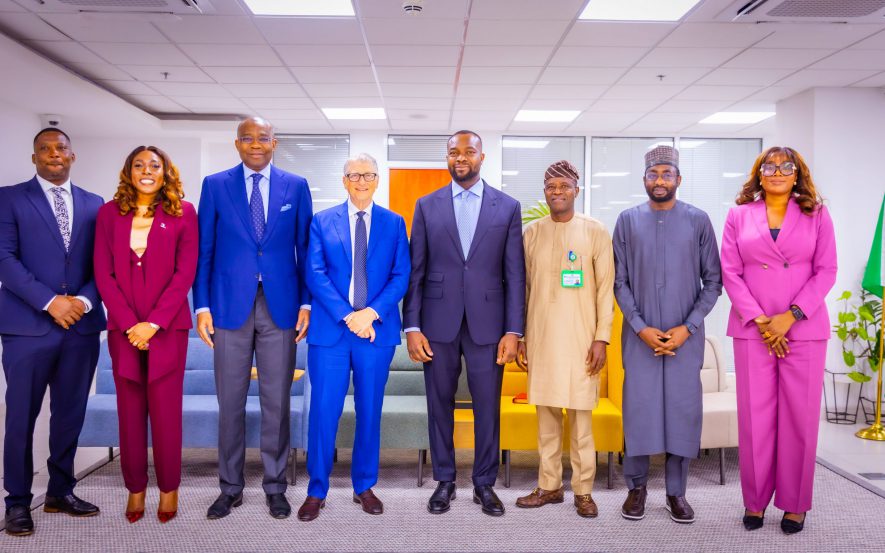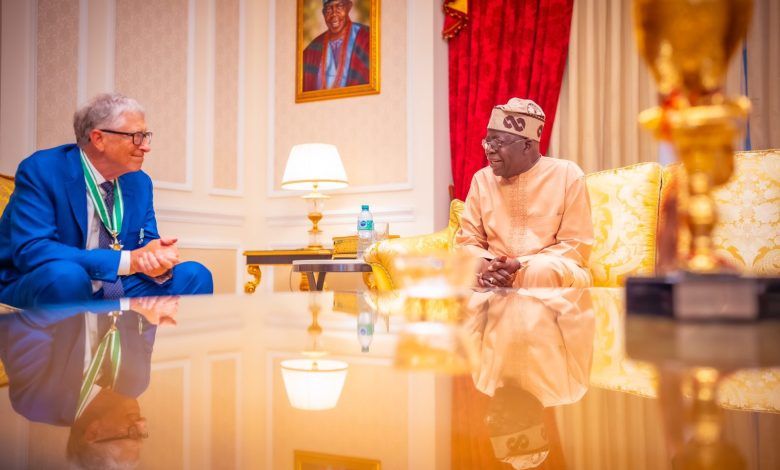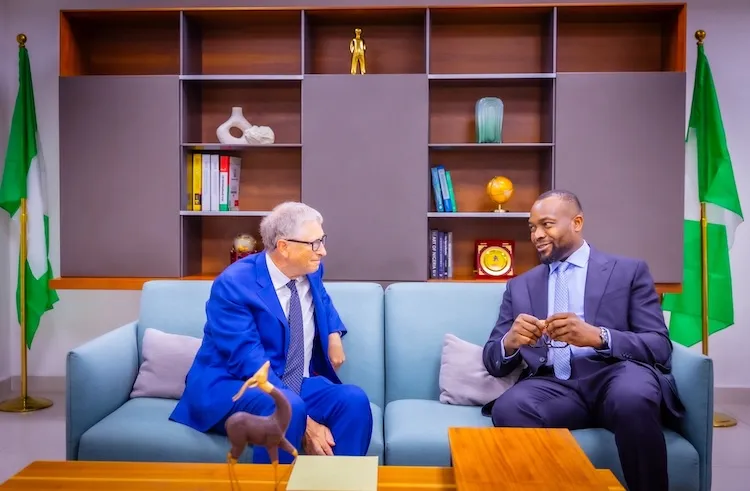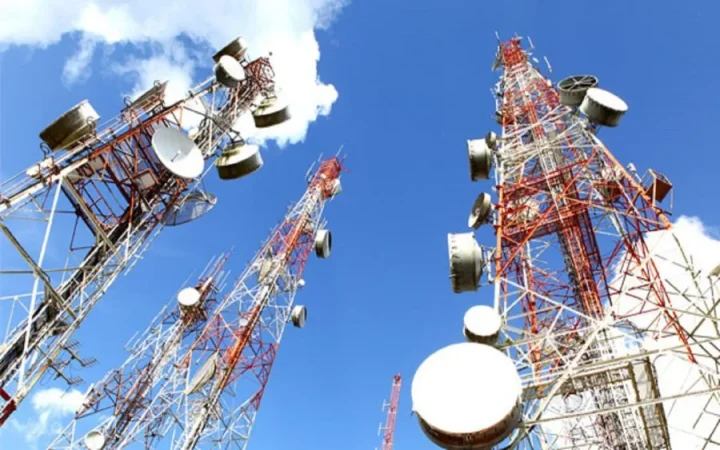Bill Gates, the Microsoft founder, just made a big promise to Nigeria. He will give $7.5 million to help the country build a new artificial intelligence center. But he also gave Nigeria some tough news about its health problems.
The Good News: A New AI Center
Gates visited Nigeria and signed a deal to create the Nigerian AI Scaling Hub. This center will use AI to help three important areas:
- Healthcare
- Farming
- Education
Dr. Bosun Tijani is Nigeria’s Minister for tech and digital economy. He was excited about this deal. “This moment means a lot, personally and nationally. I’m grateful for the trust, collaboration, and shared belief that Nigeria can lead, not just in adopting technology, but in shaping it to solve real problems.” he said.
The minister explained that “this initiative will help accelerate the application of AI in healthcare, agriculture, and education — critical sectors where impact matters most to everyday Nigerians.”
The AI center will train people and build new tools. It will help bring AI from research labs into hospitals, farms, and schools where people actually need it.

President Tinubu gave Gates a special award called CFR. This stands for Commander of the Order of the Federal Republic. It is Nigeria’s third-highest national honor, given to people who have greatly helped the country’s development. Gates got it because he has helped Nigeria with health and education for many years.

The Bad News: Not Enough Money for Health
But Gates also shared some hard truths. He said Nigeria does not spend enough money on healthcare. This is why Nigeria has very high rates of mothers and babies dying during childbirth.
“The amount of money Nigeria spends on healthcare is very, very small. So I don’t know why you would have expected that number to go down.” Gates told reporters in Lagos.
The problem is especially bad in northern Nigeria. About half of all babies are born at home instead of in hospitals. Even when women do go to health centers, many of these places cannot do surgery if something goes wrong.
Gates explained it simply: “If a mother delivers at home, there are certain complications that you can’t solve. What countries like India do is that they drive delivery into centres where they can give C-sections, but that takes money.”
Things Are Getting Worse
Gates said the situation will get even harder soon. Many countries that usually give money to help Africa are cutting their aid budgets by huge amounts.
“There will be less money for health in Nigeria next year than this year,” Gates warned.
Some countries have cut their help by 40%. Germany and the UK are giving much less money. They need funds for other things like helping Ukraine and taking care of their aging populations.
Gates pointed out that “in almost every African country, there will be less money, which will lead to a big increase in deaths.”
This means groups like UNICEF and other health organizations will have less money to help Nigeria and other African countries.
“You’re yet to see what happens when UNICEF gets cut, and Gavi gets cut, and Global Fund gets cut,” Gates said.
Nigeria Tries to Help Itself
Nigeria has tried to find more money for health. The government found an extra $200 million. But Gates said this is not nearly enough to make up for all the aid money that is disappearing.
People asked Gates if his foundation could fill the gap left by these cuts. He was honest about the limits.
“There’s nobody who can match that U.S. government money. The problem with the Gates Foundation is that we don’t have some special bucket of money. We spend more every year, and all my money will be spent.” he said.
He explained: “No matter what the other people do, it’s the same amount of money. If they increase, I’ll still spend my money. If they disappear, I’ll still spend my money. So my money is not extra money.”
New Tools to Save Lives
Even with less money, Gates showed that smart solutions can still help. His foundation is making new tools that cost less but work better.
One new tool is a cheap ultrasound machine that can tell which pregnant women might have dangerous births.
“The 10 per cent it identifies as high-risk, hopefully you can take them on to a medical facility, even though that might not be easy, and the other 90 per cent you can stay in the community,” Gates explained.
They also created a new treatment to stop dangerous bleeding after birth. Gates said they “had a trial that was so impactful that it was stopped early.” He added: “This is cheap.”
What This Means for Nigeria
Gates has big plans for Africa. He wants to spend most of his money helping African countries over the next 20 years. The Gates Foundation has already promised $100 billion worldwide and plans to give another $200 billion to Africa.
But Gates has a clear message: Nigeria must spend more of its own money on health. The country cannot rely only on outside help, especially when that help is shrinking.
Gates said the foundation has “a very aggressive goal to ensure that children born here in Nigeria have every equal opportunity to a child born in whatever the richest country in the world.”
He added: “I think we can make a lot of progress, even though in the near term, it’s an awful situation that the aid budgets are being cut significantly, and in some cases without any sort of warning at all. And that’s tragic.”
The Bottom Line
Gates’ visit to Nigeria shows two sides of the same coin. On one hand, there is exciting progress with new technology like AI that could help millions of people. On the other hand, basic health needs are not being met because there is not enough money.
The new AI center might help solve some problems in smart ways. But without more funding for basic healthcare, many Nigerian mothers and babies will keep dying from problems that could be prevented.
Nigeria now has a choice. It can use new technology to do more with less money. But it also needs to find ways to spend more on keeping its people healthy and alive.












